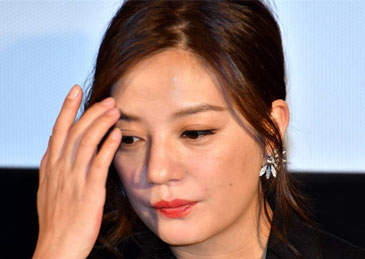According to news from the WeChat public account on January 17, on January 17, good news came from the high-profile investor lawsuit against listed companies Xiangyuan Culture (formerly Wanjia Culture) and Zhao Wei Securities for misrepresentation disputes.Just now, the plaintiff's attorney, lawyer Li Jian of Zhejiang Yufeng Law Firm, sent a message to reporters - we have just received the winning judgment of the first instance from the Hangzhou Intermediate People's Court.This is the first judgment in the country in a securities false statement case involving the defendant Zhao Wei, and it has important reference significance for subsequent cases.

It is understood that on April 17, 2018, Xiangyuan Culture issued an announcement stating that it had received an administrative penalty decision from the China Securities Regulatory Commission. The China Securities Regulatory Commission found out that the main facts of Longwei Media and Wanjia Culture’s suspected illegal information disclosure are as follows: In the transfer of controlling rightsDuring the process, Longwei Media found that the information disclosed by Wanjia Culture in the announcements on January 12, 2017 and February 16, 2017 contained false records, misleading statements and major omissions, and ordered Wanjia Culture to make corrections and gave a warning.A fine of 600,000 yuan was also imposed, and relevant responsible persons such as Longwei Media and Zhao Wei were also punished.
According to the Securities Law and relevant judicial interpretations, listed companies and other information disclosure obligors should bear civil liability for compensation due to false statements that cause damage to the rights and interests of investors.
After the punishment decision was announced, investors from all over the country sued Xiangyuan Culture and other defendants on the grounds of false securities statements.Among them, the first batch of cases represented by lawyer Li Jian were heard in the Hangzhou Intermediate Court on September 19, 2018. The plaintiff, Ms. Wang, was from Shanghai. She bought a total of 10,000 shares of Wanjia Culture from January 24 to 26, 2017., with an average price of 20.94 yuan per share, has held the stock for a long time, and sued the defendants Xiangyuan Culture and Zhao Wei for a claim of 96,203.29 yuan.
The Hangzhou Intermediate People's Court ruled that: Xiangyuan Culture's information disclosure seriously misled investors and market expectations, and its illegal behavior constituted a false statement. There was a causal relationship between the plaintiff's losses and the false statement. Xiangyuan Culture should bear the liability for compensation. Zhao WeiShould bear joint and several liability for compensation.The first-instance judgment: Xiangyuan Culture paid the plaintiff Ms. Wang compensation and interest totaling 54,535.83 yuan. Zhao Wei bears joint and several liability for the above debts and dismissed the plaintiff’s other claims.
Although the first-instance judgment has not yet taken effect, and it is expected that Xiangyuan Culture and Zhao Wei may appeal, the successful first-instance judgment is very encouraging and will undoubtedly have a positive guiding role in subsequent cases.In the past year, three to four hundred investors from all over the country have called and written to inquire about claims. Due to the dispute on the disclosure date, we adopted a litigation strategy of batches. Based on the first batch of winning judgments, we will focus on arranging large-scale litigation in the near future.sue.Lawyer Li said that according to the judicial interpretation, the claim conditions are: those who bought Xiangyuan Culture stocks from January 12, 2017 to February 27, 2017, and continued to hold or sell the stocks after February 28, 2017Damaged investors can claim compensation.The scope of claim includes: investment difference, commission, stamp duty, interest loss, etc.
Investors claiming for compensation should provide: copy of ID card, original securities account opening information confirmation form, original stock statement (from January 1, 2017 to the end of March 2017), and detailed contact information.Attorney fees are paid after the investor wins the case.
On October 26, 2018, Xiangyuan Culture released its third quarterly report for 2018 and disclosed: As of the disclosure date of this report, the company had received a total of 456 cases of securities misrepresentation liability disputes, with a total litigation amount of RMB 57,665,971.16.Of the above 456 litigation cases, one has been withdrawn, 19 have had pre-trial conferences held on July 18, 2018, and 16 of the 19 cases that have had pre-trial conferences have been heard in court on August 2, 2018;Another 2 cases have been heard on September 19, 2018, and the remaining 437 cases (including 3 cases that have held a pre-trial conference but have not yet officially opened a court session) have not yet been heard in court, and the remaining 455 cases except for cases that have been withdrawnA total of RMB 57,623,971.16.
According to public information, since 2007, the Hangzhou Intermediate People's Court has successively heard many cases of shareholders suing Hangxiao Steel Structure, Huashengda, Zhongjie, Shuyuan Technology, Roshow Technology, Honglei, Songdu, Tianmu Pharmaceutical, etc.Significantly influential securities false statement cases, among which, the shareholder v. Hangxiao Steel Structure case was selected by the Supreme People's Court as one of the top ten mediation cases of national courts.
Lawyer Li Jian pointed out that small investors sued listed companies and big star Zhao Wei, which attracted much attention in the capital market in 2019. It is of great significance in the history of securities investors' rights protection and will help promote the future development of the securities market.
The biggest highlight of this judgment is that the court ruled that the superstar Zhao Wei shall bear joint and several liability for compensation. The relevant legal basis is the Tort Liability Law, the Securities Law, and the judicial interpretation of false statements.This successful case will attract widespread attention in the capital market, and warn listed companies, asset restructuring acquirers and related executives that they will bear civil liability for violations of information disclosure obligations.



